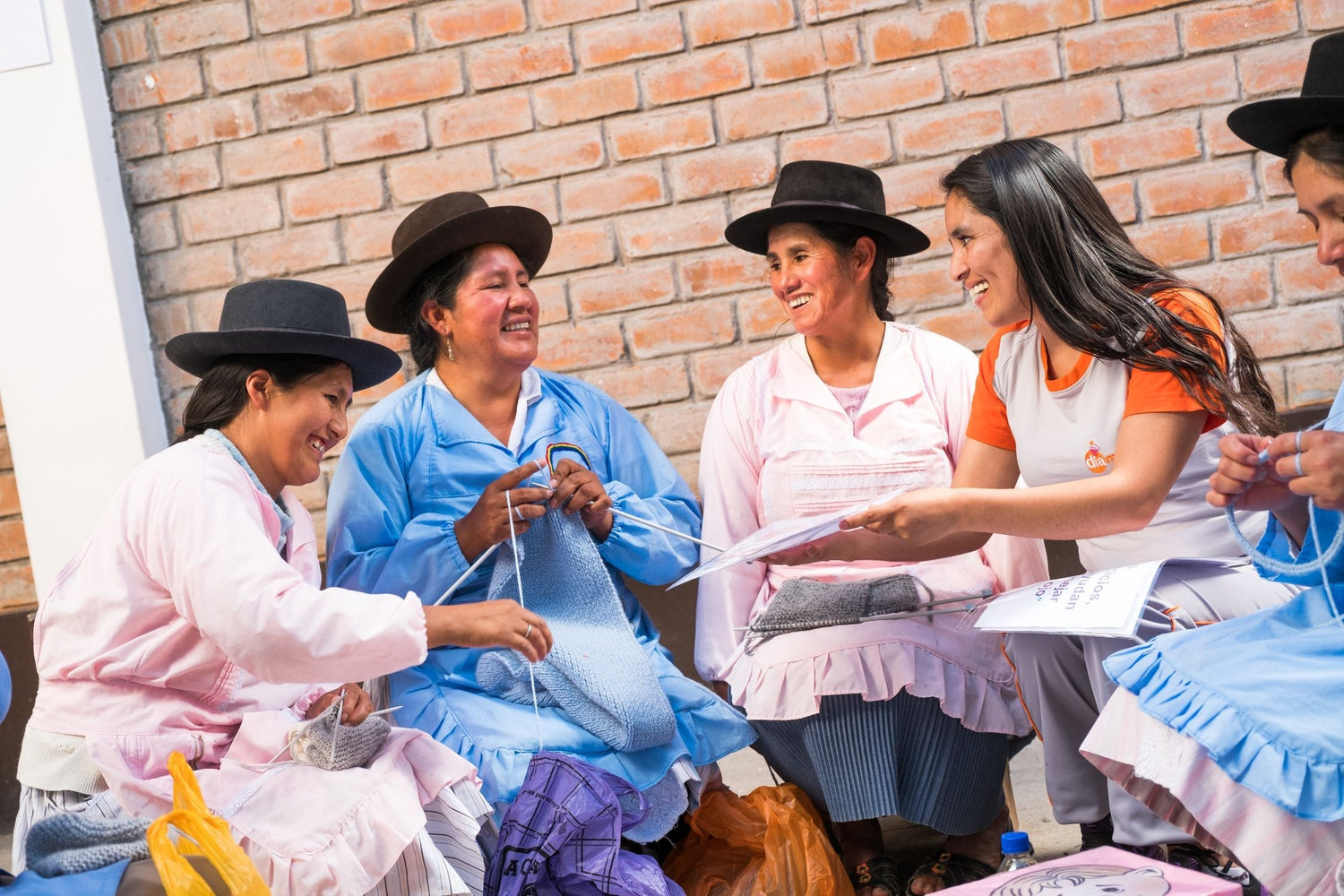The SDGs, you may have heard from them. It’s the 2030 Agenda for Sustainable Development, adopted by all UN members back in 2015, that created 17 Sustainable Development Goals a.k.a. SDGs. The aim of these global goals is peace and prosperity for both people and the planet. They highlight the connection between the environmental, social and economic aspects of sustainable development.
What is the likelihood that SDG 5 “Achieve gender equality and empower all women and girls”, will be achieved in Kenya by 2030? Jennie Anne Lester conducted a survey with Hadithi Artisans in 2022. Hear their voices below!
Gender Equality
Most of the women were in agreement that there was a definite difference, both positive and negative, between the lives of men and women.
F: (Weaver) Men have a nice life, I cook, I look after the children, I wash, I clean but my husband is loving.
S: (Beader) I don’t like cutting trees or collecting firewood. Men don’t cut trees.
J: (Beader) Men don’t build the houses. They just herd the cattle, look for green pastures for the cattle to graze. They maybe stay overnight. Elder sons go too.
H: (Weaver) Women live longer, they look after themselves better, they care about themselves, they like to keep themselves busy.
Opportunities to Work
There appeared to be consensus on a lack of opportunities for women to work.
S: (Weaver) I work, but Kenyan women don’t have many opportunities. Men leave the responsibility of the household and families to the women, so sometimes they have no time to work. [More on their shoulders]. Men can get a job away from the village and the household and have an option for a better life, women cannot.
J: (Weaver) It is not easy for women to get a job. Men work in mining, but there are not many companies [where I live], it is very rural.
Sense of Empowerment
Interestingly, many of the artisans had not heard of the United Nations, but understood what it meant to be empowered.
S: (Beader) I have never heard of the UN. But right now, I feel empowered yes, I can now take care of my children myself and this bring a lot of relief and I feel happy and content.
R: (Beader) Never heard of the UN, but feel empowered working with Hadithi CBO. I have learnt new skills.M: (Weaver) Not heard of the UN, but feel empowered in life. I love weaving.
Achieving SDG 5 by 2030
With regards to the possibility of gender equality in Kenya by 2030, there were mixed views.
S: (Beader) I've seen changes over the years, yes. There is more opportunity for women to come together in groups [we’re stronger together]. Hadithi CBO membership, it is very positive for us.
R: (Beader) Women remain behind men in Kenya. There are less opportunities for women. The leaders of Kenya do not understand women’s needs.
H: (Weaver) Since the Constitution 2010 and Kenya Vision 2030 I have seen changes. Before women were at home, now they are looking for an income and more opportunities.
K: (Employee) Gender inequality in Kenya is improving generation by generation. It can change children’s perspectives by seeing women coming out of their houses and doing things, seeing their mothers getting money. But still, sometimes the man takes the money. It’s going to take some time for men to understand. It could change. Every year things are different – young girls being exposed to possibilities is important.
H: (Weaver) It is not equal – as women we are struggling a lot, men can’t take care of the household. Every village is different, but in my village so many women experience violence and getting out of the house is good for us. The men don’t contribute to the household. They can easily run away from the home. They can find a new life in Mombassa. Women use weaving to keep busy.
Economic Resilience as a Foundation for Equality
Sales from handicrafts create financial independence for female artisans. It enables them to gain decision-making power within their families and communities. For many women, this income represents their first or only independent earnings, boosting self-confidence and challenging traditional gender roles. You can hear several artisan voices mentioning how they ‘do not need to wait for their husband anymore’.
Hadithi Crafts has provided training on financial literacy, business skills, health and gender based violence. This enables women to broaden their understanding and control over their lives. Awareness of women’s rights and health contributes to a more equal society and inspires the next generation.
Gender equality? A long way to go.




